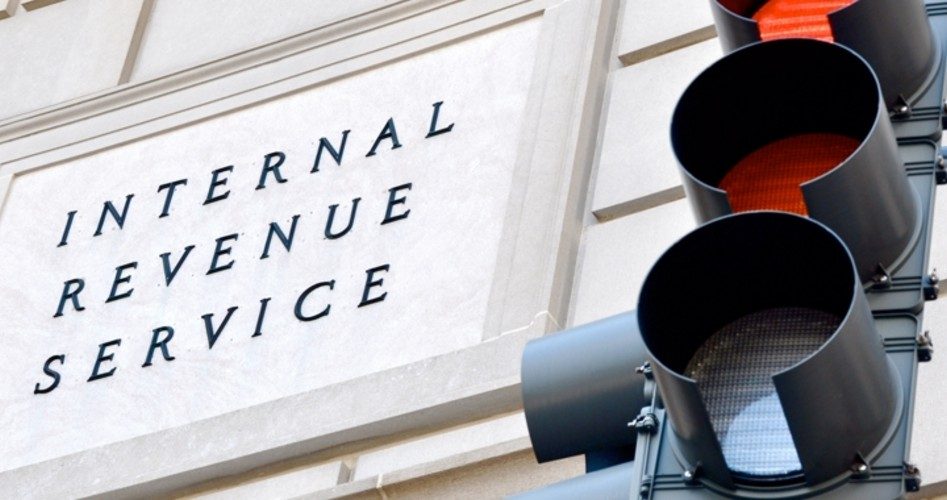
The Internal Revenue Service (IRS) audited just one out of every 160 individual tax returns in 2017, the lowest level since 2002. For those in the middle-income bracket — between $50,000 and $75,000 — the audit rate was even lower: one out of every 200 returns was audited in 2017.
Even before he was confirmed as President Trump’s treasury secretary, Steven Mnuchin was making the case for increasing federal funding for the agency. He said the agency was understaffed and “under-resourced” and claimed that billions of uncollected taxes were just waiting to be uncovered and rightfully returned to the U.S. Treasury. Mnuchin’s argument was augmented by William Gale, a senior fellow at the left-liberal Brookings Institution: “Adjusted for inflation, IRS funding in 2016 was the same as in 1998. As a result, IRS employment has fallen about 27 percent — by 30,000 workers — since then.”
Gale lamented the increased workload those remaining employees had to handle: The number of income-tax returns is approaching 170 million every year, but the agency is still using outdated computer technology to try to keep up with the flood. “Many of its computer systems and programs belong in museums — they are running applications from the 1960s,” he said.
Gale estimated that American taxpayers are underreporting so much of their income that they are depriving the federal government of $458 billion a year, “and only $52 billion of that amount will [ever] be collected.”
Gale thinks the increased funding for the IRS will be returned in multiples: “Every dollar invested in the IRS yields $4 in higher revenues, with even greater returns for spending on enforcement.”
Gale thinks that withholding is a wonderful thing: “Tax compliance is highest when … income … is subject to withholding because incomes are more visible … to the IRS.”
Libertarian economic historian Murray Rothbard took an opposite view. Writing in his For A New Liberty, published in 1973, Rothbard said, “the withholding system, of course, is the linchpin of the whole federal income tax system. Without the steady and relatively painless process of deducting the tax from the worker’s paycheck, the government could never hope to raise the high levels of tax from the workers in one lump sum.”
Vivien Kellems, a small-business owner in Connecticut, became outraged when the government instituted withholding during World War II (sold as a temporary wartime necessity) and said that she needed to start collecting withholding from her employees. She refused, declaring that “If they wanted me to be their agent, they’d have to pay me, and I want a badge.” Rothbard applauded Kellems in his book:
It is perhaps significant that the federal government, challenged by Vivien Kellems to test the constitutionality of the withholding system, failed to take up the challenge. In February 1948 Miss Kellems, a small manufacturer in Westport, Connecticut, announced that she was defying the withholding law and was refusing to deduct the tax from her employees. She demanded that the federal government indict her, so that the courts would be able to rule on the constitutionality of the withholding system. The government refused to do so, but instead seized the amount due from her bank account. Miss Kellems then sued in federal court for the government to return her funds. When the suit finally came to trial in February 1951, the jury ordered the government to refund her money.
Those in the freedom fight might support a strategy that would require all taxpayers to pay their income taxes by personal check at the time they fill out their tax return forms. If those checks were required to be sent the day before the second Tuesday in November (Election Day), then perhaps there might be a different attitude toward taxes and the Internal Revenue Service than that expressed by Treasury Secretary Mnuchin!
An Ivy League graduate and former investment advisor, Bob is a regular contributor to The New American magazine and blogs frequently at LightFromTheRight.com, primarily on economics and politics. He can be reached at [email protected].



